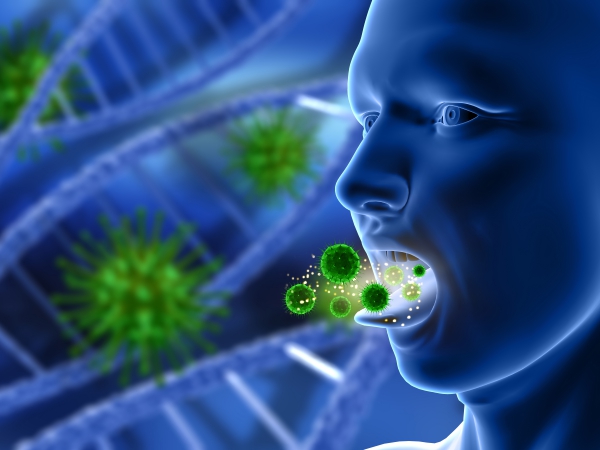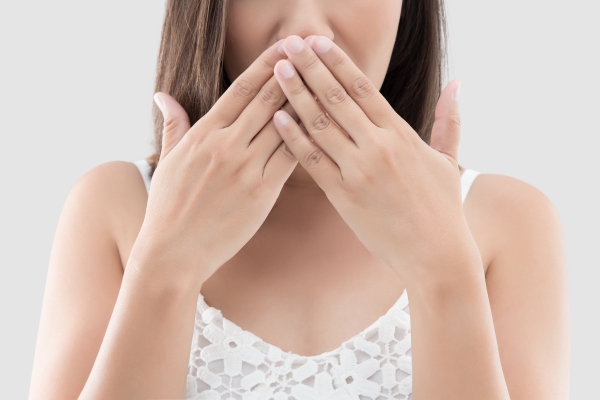What is bad breath?
Bad breath, also known as halitosis, is a very common condition which can result in embarrassment and anxiety. This is mostly caused by a disturbance in the microorganisms present in the mouth. Your mouth normally contains several bacterial species which digest proteins and other substances leading to oral malodour. Most people are not even aware of their own bad breath. They only get to know when someone else tell them so. This makes halitosis a significant problem as it can impact someone’s quality of life and relationships. Bad breath, despite sometimes being considered as a condition on its own, can actually be a symptom for an underlying condition.
Physiologic halitosis is when bad breath is present in the morning and is temporary. This is a normal type of bad breath. Pathologic halitosis is then there is a specific underlying cause to it. Up to 32% of the general population suffer from bad breath. It can affect people at any age, even children, but is more common among adults. It affects both men and women equally. Most cases of bad breath (80-90%) are due to an intraoral cause. An easy way to distinguish whether the problem comes from the mouth or a non-oral cause is to compare the smell coming from the mouth with that coming out of the nose. In people who are strict with their oral hygiene and having a good dentition, the main culprit for bad breath is the back of the tongue.

What are the causes of bad breath?
There are several causes of bad breath including:
- Physiologic: Saliva normally helps regulating bad breath. During the day, saliva continually flows in your mouth. This helps to eliminate bad breath. During the night, the levels of flowing saliva drops, and in association with fasting and inadequate water intake, the intensity of bad breath increases. This explains why you normally have bad breath in the morning when you wake up. This is also known as morning breath. This type of bad breath usually resolve once you brush, floss, eat or drink water. Smoking, consumption of aromatic foods (such as onions and garlic) and certain beverages (such as alcohol and coffee) are also responsible for temporary bad breath.
- Oral causes: This is the most common cause of bad breath. This may be due to bacterial infections present in structures in your mouth. Dental caries or trapped food in between teeth can also be responsible for bad breath. An excessive white tongue coating causes a decrease in oxygen in your mouth. This favours the development of bacteria that causes bad breath in your mouth. This type of halitosis does not get better during the day in contrast to physiologic causes. Having a dry mouth also makes you more prone to having bad breath. This may be due to inadequate water intake or certain medications. Inadequately cleaned dentures also contribute to halitosis.
- Disorders of the tonsils: The tonsils are two pad like structures located on each side of the back of the throat. Some people may have cheese-like discharge from their tonsils causing bad breath. In some cases, tonsil stones may develop. These stones contain a large amount of bacteria responsible for bad breath. Abscess in your tonsils also contribute a lot in halitosis.
- Nasal causes: When bad breath is due to a nasal cause, the odour is more prominent in air exhaled from the nose compared to that from the mouth. This may be due to chronic inflammation of the sinus, postnasal drip or presence of foreign bodies in the nose. Furthermore, respiratory causes may also lead to bad breath. These include bronchitis and lung abscess. However, respiratory causes are rare.
- Gastrointestinal causes: Rarely, bad breath may come from a gastrointestinal source. Some odorant volatiles may come from the stomach and move up to the mouth.
- Systemic causes: If the cause of bad breath is systemic, both smell from the mouth and nose will be similar. This may be due to advanced kidney disease, liver disease, or trimethylaminuria which is a rare genetic disease.
- Subjective: This is when someone complains of bad breath but a medical health professional cannot identify it. This is then classified as psychologic or neurologic.



How is bad breath evaluated?
Often, people with bad breath seek medical help either to a dentist, dental hygienists or a doctor. To begin the evaluation of halitosis, your health professional will begin by asking you a series of questions. He/she will then proceed with a physical examination. This will include examining your tongue, dentition, gum, oral mucosa, tonsils and nose. In some cases, special tests may be performed for a complete evaluation.
In some cases, your doctor may refer you to a dentist, neurologist, otolaryngologist or any other medical specialist depending on the findings.
How is bad breath managed?
The management for bad breath depends on the underlying cause. If a cause has been identified, you should be treated for that condition. If gingivitis has been identified, your dentist will provide appropriate care. If a particular medication is causing dry mouth, eventually leading to bad breath, this medication may have to be discontinued if possible. If a pathology with the tonsil is identified, an otolaryngologist will chose the appropriate treatment and in some cases the tonsils may have to be removed. Tonsil stones are first treated conservatively with self-cleaning. Laser CO2 cryptolysis may be necessary to prevent the formation of stones. If the mentioned measures fail, the tonsils may have to be removed surgically.
In some cases, no cause can be identified. Lifestyle modifications are then warranted in these cases. These include:

- Chewing gums that are low in sugar as this promotes saliva production.
- Drink plenty of water to avoid dry mouth.
- Limit your intake of alcohol and coffee.
- Brush your teeth properly at least twice a day. Include flossing in your dental care routine.
- Make sure to clean the posterior part of your tongue thoroughly but gently with a plastic tongue cleaner.
- Use a mouthwash for rinsing or gargling before going to bed. Use mouthwash which contains chlorhexidine gluconate.

Source:
Villa, A., and Bruch, J., 2020. Bad breath
Patil, S., 2016. Halitosis
Loesche WJ, Kazor C. Microbiology and treatment of halitosis. Periodontology. 2000. 28:256-279.
Prinz H. Offensive breath, its causes and its prevention. Dent Cosmos. 1930. 72:700-707.
Rosenberg M. Clinical assessment of bad breath: current concepts. J Am Dent Assoc. 1996 Apr. 127(4):475-82.


